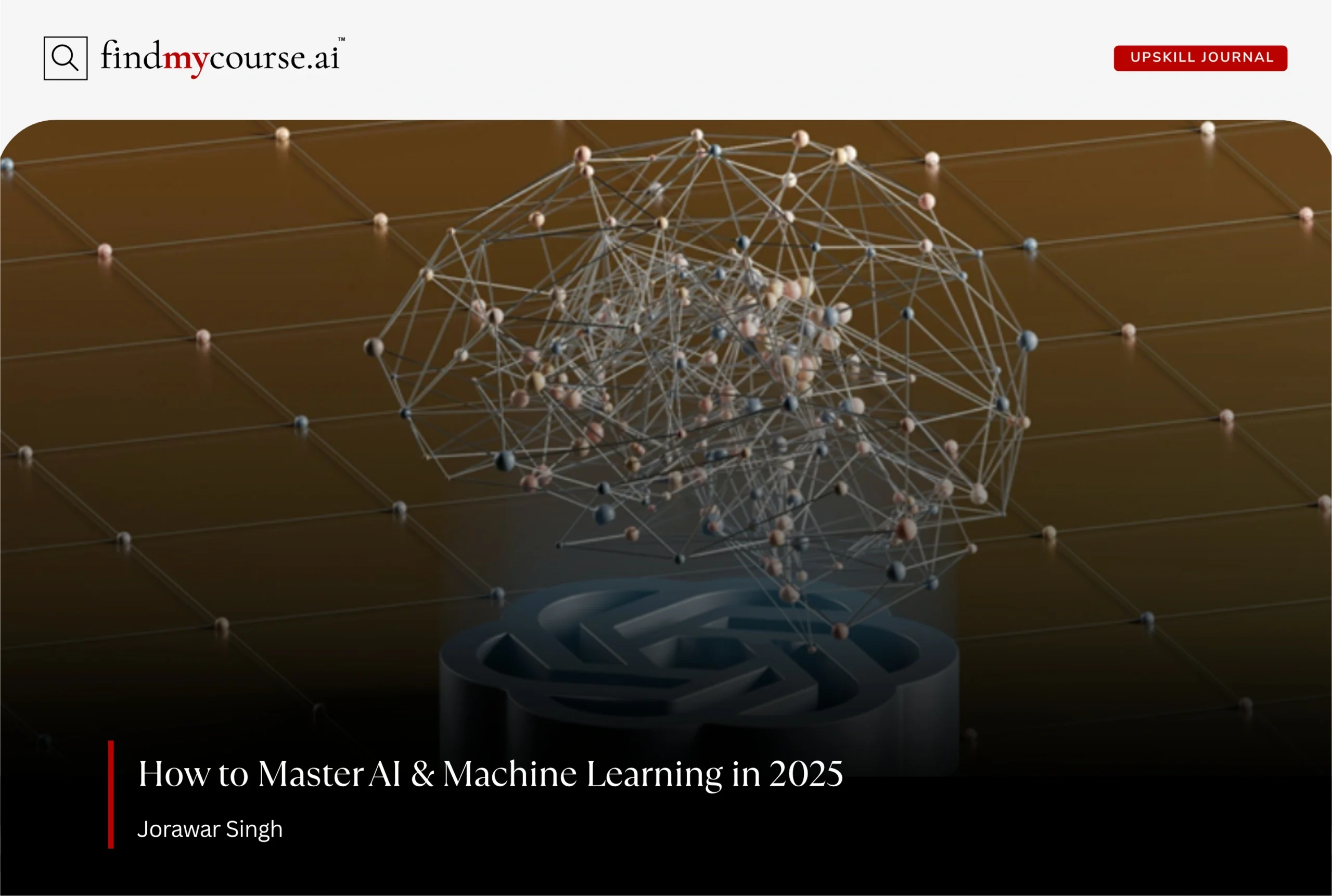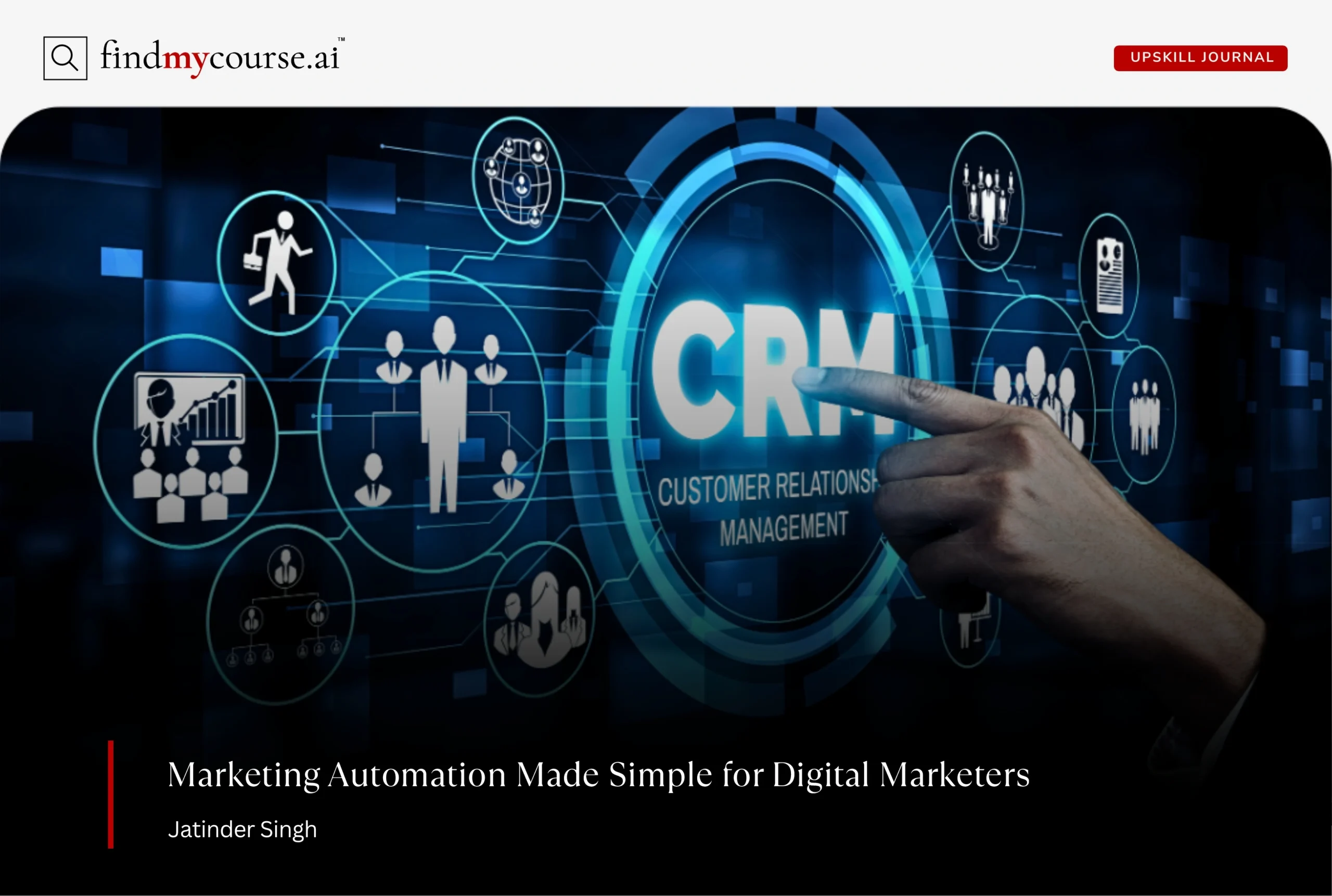AI and Machine Learning are changing the world faster than ever. Whether healthcare or smarter customer experiences, these technologies are at the heart of innovation across industries. If you want to future-proof yourself or learn an exciting new skill, then learning these in 2026 is necessary. In this guide, you’ll find everything about AI and Machine Learning: what it is, why it matters, which skills to focus on, the best courses for beginners, and how to organize your learning path. Whether you’re a novice or a professional in search of moving up the AI learning curve, this article will be the push you need for your AI career.
AI and Machine Learning: Knowing the Basics
In Comparison: Artificial Intelligence Phenomena
Artificial intelligence refers to computer systems that can perform tasks requiring human intelligence. The range of actions includes language comprehension, image recognition, decision-making, and problem-solving. AI systems have become ubiquitous in our daily lives, with implementations in voice assistant applications such as Siri and Alexa and even in streaming services that recommend a movie to watch.
What is Machine Learning?
Machine learning is a more precise definition of AI that allows the computer to learn patterns and make decisions based on data instead of being programmed explicitly. Instead of coding the rules, machine learning algorithms learn through examples to improve and perform better with time. ML is divided into the following:
- Supervised Learning: Algorithms train using the data labeled for prediction.
- Unsupervised Learning: Algorithms search for hidden and interesting patterns in the dataset with no labels.
- Reinforcement Learning: A system learns ways to maximize reward with feedback derived from interaction.
AI and ML enable great feats in self-driving cars, fraud detection, and medical diagnoses.
Why Learning AI and Machine Learning Matters in 2026
The demand and job market for AI and ML have increased greatly. It was forecasted recently that AI will witness a more than 30% growth of jobs through 2028, the highest rate compared to almost all other tech roles. The larger digital transformation has affinities with global events, and such events have made it imperative for companies to use AI lest they go out of business. By 2026, possessing AI skills won’t be an option; software development, data science, and product management, among other fields, will require such knowledge. To Learn AI and Machine Learning today means to secure career resilience and step into the world of innovation.
Essential Skills to Learn AI and Machine Learning
Foundational Skills
To learn AI and Machine Learning, you need to have the following in your toolkit:
- Mathematics: The important topics include linear algebra (matrices and vectors), calculus (derivatives and integrals), and statistics (probability and distributions). These help you understand how algorithms work.
- Programming: Python is the most widely used language in AI/ML, given its simplicity and the usefulness of its libraries. Programmers who understand data structures, loops, and functions will be better placed to write models.
Core Capstone Concepts of AI and Machine Learning
These concepts will increase your knowledge of AI:
- Algorithms: Learn common machine learning algorithms such as linear regression, decision trees, and support vector machines.
- Neural Networks: The core of deep learning, neural networks are designed to work like a brain, handling difficult problems such as image recognition, speech recognition, etc.
- Deep Learning: A subcategory of ML comprising numerous layers of neural networks, which finds use in more advanced applications.
Tools and Frameworks to Know
The practical use of AI tools is crucial. You should begin with:
- TensorFlow & PyTorch: These are the widely used frameworks for building neural networks.
- Scikit-learn: Ideal for beginners to practice standard ML algorithms.
- Jupyter Notebooks: An interactive coding environment for mixing code, visualization, and notes.
- Data Visualization: Libraries such as Matplotlib and Seaborn show data patterns clearly.
Best Beginner AI and Machine Learning Courses
Top Online Platforms
Several platforms in 2026 offer quality AI education, including:
- Coursera: Partners with Stanford, among others, and companies like Google.
- edX: Courses are offered by MIT, Harvard, and others.
- Udemy: Most affordable, preferably for courses with practical projects.
- LinkedIn Learning: Shorter in duration and oriented towards career training.
Here are some good beginner-friendly courses in 2026:
- Machine Learning by Andrew Ng (Coursera) is the classic starting point for understanding basic concepts.
- AI For Everyone (Coursera): Non-technical introduction about how AI impacts people and examples of its implementation.
- Deep Learning Specialization (Coursera): Go in-depth into neural networks and learn the best deep learning practices.
- Python for Data Science and Machine Learning Bootcamp (Udemy): A hands-on Python course with a focus on practical applications of ML.
- Introduction to Artificial Intelligence (edX): Covers the basics of AI with real-world examples.
Free vs. Paid Learning Resources
Free Resources: Learning the basics and exploring at no cost is best. For example, Google’s AI Crash Course and fast.ai are great resources.
Paid Courses: These are usually the best-structured learning with assignments and certification; they help you learn faster, guided by a professional.
Finding a balance between such courses will provide an inexpensive and well-rounded education.
How to Structure Your Learning Journey
Setting Realistic Goals and Timelines
Your learning journey must begin by describing what you want to achieve from it. For example, “Complete a machine learning project in 3 months” or “Get a job as an AI intern in 6 months.” Then, break down this huge work into weekly milestones that remain manageable and measurable in terms of progress.
Practice with Real Projects
Just theory will never suffice. Build what you learn through:
- Constructing simple prediction models.
- Participate in Kaggle competitions, which are platforms for data science challenges.
- Create projects such as image classifiers or chatbots to prove your skills.
Join Communities and Networks
It’s easier and more rewarding if you learn with others. Join:
- AI-oriented forums such as Reddit’s r/MachineLearning.
- LinkedIn groups of AI professionals.
- Discord channels for immediate support and networking.
Being active in the community gives you motivation and insight into the latest industry trends.

Career Opportunities After AI and Machine Learning
The demand for AI and Machine Learning is skyrocketing worldwide, and companies from all sectors are seeking to use data and automation. The AI talent market will remain competitive in 2026, providing lucrative career paths with ample growth and salary opportunities.
Data Scientist:
Data scientists are counted as one of the most sought-after professionals in AI. They are primarily responsible for analyzing complex data sets and interpreting them to generate insights for business decisions. Data scientists typically perform statistical analysis and visualization and are well-versed in machine learning algorithms. They work with stakeholders to define key business questions and suggest data-driven solutions. They could analyze anything from customer analytics to product optimization or predictive modeling.
Machine Learning Engineer:
Machine Learning Engineers focus on building, testing, and deploying ML models into practical applications. While data scientists focus on data exploration and prototyping, engineering puts the models into production code that can scale efficiently. Programming skills, cloud computing, and ML frameworks like TensorFlow or PyTorch are indispensable for them. They are crucial in creating AI research into tangible tools, such as recommendation engines or fraud detection systems.
AI Researcher:
An AI researcher advances the frontiers of AI by fostering new algorithms, architectures, and methodologies. This research is performed in academic environments, corporate research laboratories, or AI-oriented startups. They focus on pushing the boundaries of deep learning, reinforcement learning, NLP, and other subfields. These are the ones who prepare scientific publications, open-source projects, and occasionally patent inventions that lay the ground for future AI technologies.
Industries Hiring AI Experts:
AI skills have become indispensable in many industries, each applying machine learning to approach a complex problem differently.
Healthcare:
AI is poised to change healthcare with better diagnostics, personalized medicine, and faster drug discovery. Medical procedures utilize machine learning to analyze medical imaging and detect the early onset of disease, mainly cancer. Simultaneously, AI tools help hospitals manage patient data in conformity with the highest safety levels. Demand for AI experts in this domain continues to grow as its application improves the quality of patient care.
Finance:
Many AI applications in finance attract attention for things like detecting fraud, risk assessment, and algorithmic trading. AI models analyze real-time transaction data streams to pinpoint routes of suspicious behavior, thereby reducing ways towards financial crimes. Further, portfolio management increasingly focuses on investment decisions using AI forecasts. Hence, AI skills form a key part of fintech innovation.
Marketing:
AI enriches marketing by creating differentiated customer experiences and targeted advertisements. ML models study consumer behavior to segment customers by groups, anticipate trends, and bring campaign optimization. AI facilitates content creation, customer interaction, and lead scoring to drive smarter marketing.
Tips to Get Your First AI Job
Breaking into the AI field may seem intimidating. However, with the correct set of strategies, the first role in AI is attainable.
Create a Portfolio That Stands Out:
Work on projects that highlight your capabilities and share those projects with others. You could host your code on GitHub or even design a simple personal website to showcase your projects, ideally containing data studies, machine learning models, and AI applications.
Work as an Intern or Freelance:
Experience is the best teacher. Sign up for internships or freelance gigs on Upwork or hybrid Kaggle competitions. Working on live challenges will sharpen your skills and add weight to your resume.
Utilize LinkedIn:
Networking brings opportunities. Greet AI gentlemen, charm them in groups, engage in healthy dialogs, and push your projects and viewpoints there on LinkedIn. Recruiters sometimes hunt on LinkedIn for freshly minted talent.
Keep Updating Your Knowledge:
AI is constantly in flux. Closely track the news, attend webinars, and grab some advanced courses. Never stop learning, for this will make your skills relevant and competitive.
Article Conclusion
Concerning AI and Machine Learning, 2026 has various avenues for learners of all grades. One may enter into delightful career opportunities by understanding the basic concepts, critical skills, and a well-curated learning path. There are excellent courses and communities, so the moment to kick off your AI journey is now. Embrace the future, invest in your education, and become part of the AI revolution reshaping the world.


